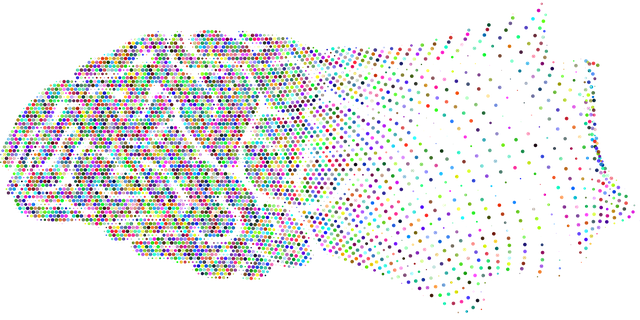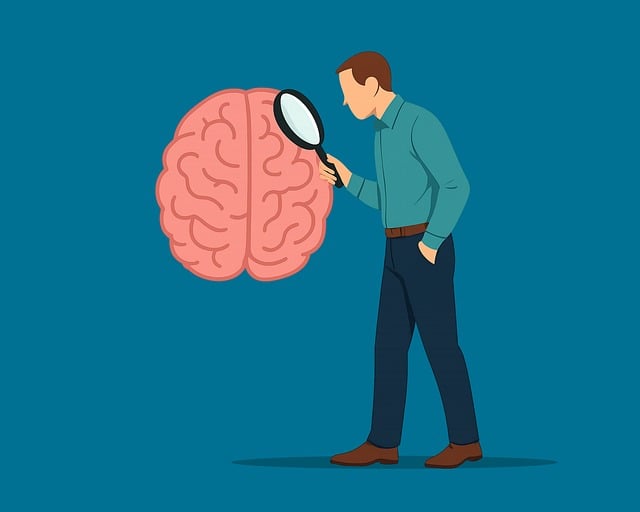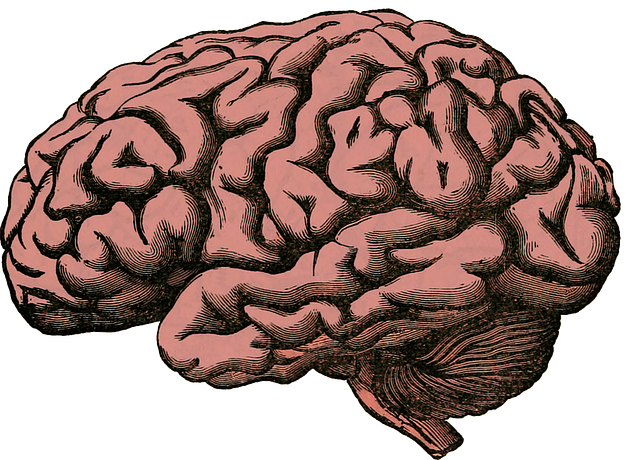Navigating mental health care for adolescent teens requires a nuanced approach, especially considering their developing brains. Professional therapists use evidence-based assessments to identify conditions like depression and anxiety, tailoring therapy plans accordingly. American Sign Language (ASL) emerges as a powerful tool in community outreach programs, reducing stigma and encouraging open conversations about mental health among diverse groups, including deaf or hard-of-hearing teens. This approach fosters trust, engagement, and resilience, empowering adolescents to embrace their diagnoses and initiate treatment. For deaf teens, ASL therapy overcomes communication barriers, enhancing emotional intelligence and improving mental wellness outcomes. Specialized programs and ASL interpretation services provide families with the resources needed to actively engage in treatment plans, leading to better anxiety relief and improved mental well-being for adolescent teens.
“Mental illness diagnosis and treatment navigation assistance are vital for adolescent teens, offering crucial support in their formative years. This comprehensive guide explores key aspects of youth mental health, including understanding diagnoses, the unique role of American Sign Language in enhancing treatment access, and navigating effective therapy options tailored to teenagers.
We delve into essential support systems and resources available to teens and their families, culminating in inspiring case studies showcasing the power of perseverance and recovery through therapy for adolescent teens.”
- Understanding Mental Health Diagnoses for Adolescent Teens
- The Role of American Sign Language in Treatment Access
- Navigating Effective Therapy Options for Youth
- Support Systems and Resources for Teenagers and Their Families
- Case Studies: Success Stories of Youth Overcoming Challenges
Understanding Mental Health Diagnoses for Adolescent Teens

Navigating mental health diagnoses for adolescent teens can be a complex and often daunting task. It’s crucial to recognize that young minds are still developing, and symptoms may differ from those experienced by adults. Mental illness in adolescents presents unique challenges due to the rapid changes occurring in their brains, bodies, and social environments. A qualified professional, such as a psychologist or psychiatrist, can provide much-needed clarity through comprehensive assessments using evidence-based practices. By delving into these assessments, therapists can accurately identify conditions like depression, anxiety disorders, or more complex cases, offering tailored therapy plans that cater to the specific needs of each teen.
American Sign Language (ASL) has emerged as a valuable tool in this context, particularly within community outreach programs designed to reduce mental illness stigma. These initiatives encourage open conversations about mental health, ensuring adolescents from diverse backgrounds feel heard and understood. Through ASL, therapists can communicate effectively with teens who are deaf or hard of hearing, fostering an inclusive environment that promotes trust and engagement. By integrating mind over matter principles, where positive mindset shifts are encouraged, these programs empower young individuals to embrace their diagnoses, initiate treatment, and cultivate resilience.
The Role of American Sign Language in Treatment Access

For many deaf or hard-of-hearing teens, access to therapy and mental health services can be a significant challenge. Traditional talk therapy often falls short in addressing their unique communication needs, leading to barriers in seeking help for their emotional struggles. This is where American Sign Language (ASL) plays a pivotal role as a powerful tool in navigating treatment. By incorporating ASL into therapeutic settings, professionals can ensure that adolescent teens who are deaf or hard-of-hearing receive the same quality of care as their hearing peers.
Therapy for these young individuals becomes more inclusive and accessible when therapists learn basic ASL signs, enabling them to engage in open communication with their clients. This not only facilitates better understanding but also fosters a sense of comfort and trust, encouraging teens to express their feelings and experiences more freely. Additionally, the use of ASL can enhance emotional intelligence by promoting non-verbal cues, body language interpretation, and mindfulness meditation skills, all of which contribute to improved mental wellness.
Navigating Effective Therapy Options for Youth

Navigating effective therapy options for youth involves understanding their unique needs and preferences. Many adolescents struggle with issues like anxiety relief, which can significantly impact their daily lives. Therapies tailored to this age group often focus on fostering positive thinking and building confidence, essential components in their overall mental health development. American Sign Language (ASL) can be a game-changer for deaf or hard-of-hearing teens, ensuring they receive support in a language they are most comfortable with.
Effective therapy options should encourage open communication and create a safe space for youth to express themselves. Therapists skilled in ASL can offer specialized care, promoting positive thinking and confidence-boosting strategies that resonate with these young individuals. By adapting treatments to their linguistic and cultural needs, professionals can enhance the effectiveness of therapy, ultimately supporting adolescents on their journey towards better mental health.
Support Systems and Resources for Teenagers and Their Families

Navigating mental health challenges can be especially daunting for teenagers and their families. Thankfully, there are robust support systems and resources available to help young individuals and their loved ones find their way. Many communities offer specialized programs tailored to adolescents, focusing on therapy for adolescent teens, including options like art therapy, music therapy, and social skills training to foster self-esteem improvement.
American Sign Language (ASL) interpretation services have also become increasingly accessible, breaking down communication barriers for deaf or hard-of-hearing teenagers seeking mental health support. These resources ensure that families can actively participate in treatment plans and connect with professionals who understand their unique needs. By leveraging these support systems, teenagers and their families can gain invaluable anxiety relief and navigate the path to improved mental well-being.
Case Studies: Success Stories of Youth Overcoming Challenges

Many young people have successfully navigated their mental health journeys, thanks to dedicated support and innovative approaches like therapy for adolescent teens using American Sign Language (ASL). These case studies highlight the power of tailored interventions that address unique challenges faced by youth. One such story involves a teenager who struggled with anxiety and social withdrawal. Through a combination of individual therapy and group sessions conducted in ASL, they learned effective coping mechanisms and built a supportive network, leading to improved self-confidence and social interactions.
Another inspiring example is a young person who had experienced trauma and faced internalized anger. By incorporating empathy-building strategies and conflict resolution techniques into their treatment plan, they gained valuable tools to manage intense emotions. With the help of dedicated therapists, they could express their feelings safely, resolve internal conflicts, and develop healthy coping mechanisms. These success stories demonstrate that with the right support services, youth can overcome challenges and thrive.
Mental illness diagnosis and treatment can be a complex journey, especially for adolescent teens. By understanding various diagnostic methods, exploring inclusive communication tools like American Sign Language (ASL), and accessing tailored therapy options, young individuals and their families can navigate these challenges effectively. The support systems and success stories highlighted in this article underscore the importance of comprehensive resources in fostering resilience and recovery among teenagers. Embracing ASL as a treatment access point is a significant step towards providing equal care to all youth, ensuring they receive the necessary therapy for their well-being, including specialized services for adolescent teens.









